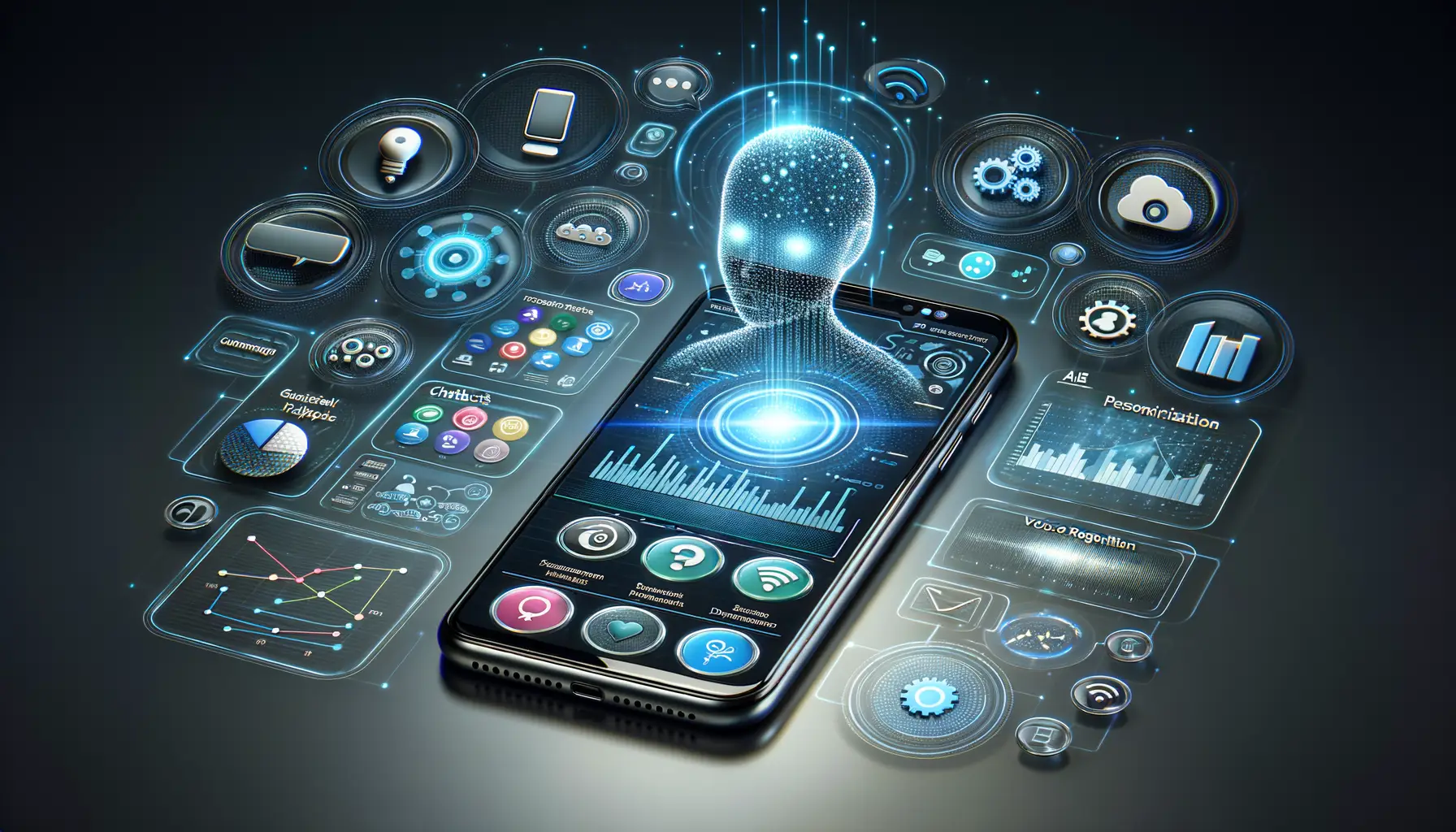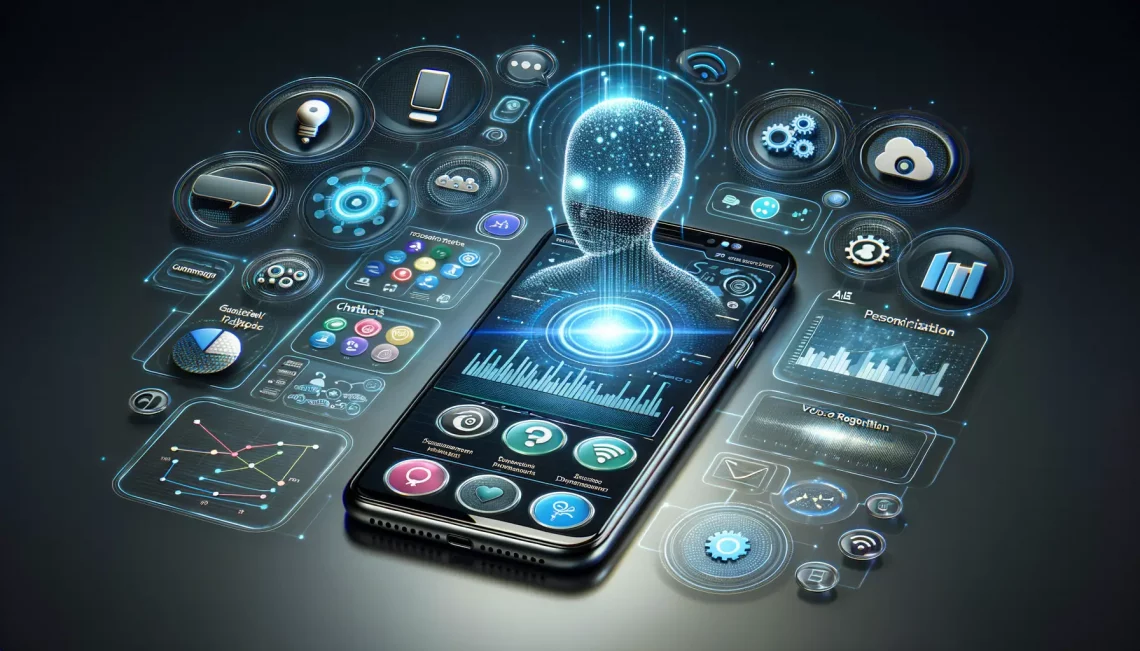Understanding the Role of AI in Mobile App Marketing
How AI is Reshaping the Heart of App Marketing
Have you ever felt like mobile app marketing was a frantic race against time? One moment you’re tracking downloads, and the next, you’re scrambling to understand user churn. Enter AI, your behind-the-scenes strategist who never sleeps. Think of it as that genius friend who sees patterns others miss—except this one works at lightning speed.
With AI, you’re no longer shouting into the void hoping someone downloads your app. Instead, you get razor-sharp insights into what users really want. For instance, ever wondered why some first-time users vanish while others binge on your features like a Netflix series? AI dives deep into behavior, serving up answers you didn’t even know you needed.
- An AI-powered algorithm can predict user preferences with uncanny accuracy, so you’re always one step ahead.
- It can segment your audience into micro-groups, helping you craft personalized messages that actually resonate.
- And hey, it can even schedule campaigns at precisely the right moment for maximum impact. So goodbye, guesswork!
At its core, AI in mobile app marketing isn’t just about efficiency—it’s about creating smarter, more human-like connections. It transforms your strategy from generic to unforgettable.
Key Applications of AI in Mobile App Strategies

Transforming Customer Experiences with AI
Imagine this: your app instantly knows what your users want, even before they do. That’s the magic of integrating AI-driven personalization. From recommending the perfect playlist during a workout to suggesting the next best product in an e-commerce app, AI ensures every interaction feels tailor-made. By analyzing countless behaviors, preferences, and patterns, your app becomes less of a tool and more of a trusted companion.
Take chatbots, for example. These aren’t your typical canned-response bots anymore. With AI, they’re fluid, intuitive, and downright conversational. Picture a late-night shopper asking about return policies—they get real-time answers, guidance, and maybe even a special discount offer, all without human intervention! AI isn’t just answering questions; it’s nurturing relationships.
Boosting Engagement through Smart Automation
Seamlessly engaging users can feel like juggling balls while blindfolded. But with AI-powered automation, it’s smooth sailing. Consider push notifications: instead of generic blasts, AI crafts hyper-relevant messages based on user habits.
What else can you achieve?
- Create dynamic pricing strategies based on user demand.
- Optimize content recommendations for binge-worthy experiences.
- Detect churn risk and deliver retention offers at the perfect moment.
With AI, your app doesn’t just meet expectations—it anticipates them.
Benefits of Incorporating AI in App Marketing

Unlocking Precision and Personalization
Imagine knowing exactly what your users want before they even tell you. With the magic wand of Artificial Intelligence (AI), app marketing becomes more than just educated guesses—it’s an art of precision. AI dives deep into oceans of data, surfacing patterns and insights that were once impossible to see. The result? Hyper-personalized experiences that make users feel like the app was built just for them.
Picture this: a fitness app that doesn’t just suggest random workouts but knows when you’re most likely to need motivation—and sends a perfectly timed nudge. Or a shopping app that recommends items based on your actual preferences instead of vague assumptions. AI empowers marketers to create content that truly connects.
Efficient, Scalable, and Surprisingly Human
Let’s talk speed and scale—something every app marketer dreams about. AI is like having a team of tireless strategists who never sleep. It can:
- Predict user behavior with uncanny accuracy, optimizing ad placements and saving advertising dollars.
- Automate repetitive tasks like A/B testing, email campaigns, and audience segmentation—freeing up your time for creative innovation.
- Deliver continuous learning, adapting strategies in real-time as trends shift and users evolve.
But here’s the kicker: despite being a machine, AI makes interactions feel more deeply human. It tunes into emotions, offering just the right touchpoint at just the right time, creating bonds that last well beyond the “download” button.
Challenges and Considerations with AI Integration

Untangling the Knots of AI Integration
If you’ve ever tried assembling IKEA furniture without the instructions, you’ll have a glimpse of what integrating AI into mobile app marketing can feel like. While the potential is tremendous, the journey isn’t without its hair-pulling moments.
First off, let’s talk about data—AI thrives on it. But gathering and organizing this treasure trove can be messy. Imagine trying to sift through millions of user behaviors, preferences, and interactions only to realize half your data is incomplete or inaccurate! It takes a lot of effort and investment in clean, structured datasets to keep your AI humming smoothly.
And then, there’s the question of balance. Sure, AI loves automation, but leaving everything on autopilot can lead to awkward, tone-deaf marketing campaigns. Nobody wants a chatbot giving the same canned reply to a frustrated customer asking about a major bug.
- Budget constraints? AI tools don’t come cheap, and scaling them often feels like climbing an investment mountain.
- Privacy worries? Let’s face it—GDPR and similar regulations can feel like a minefield.
The key takeaway? While AI is powerful, it demands patience, strategy, and a human touch to unlock its real magic.
Future Trends in AI-Powered Mobile Marketing

AI and Hyper-Personalized Mobile Experiences
Imagine opening a mobile app and feeling as though it knows you better than your best friend. That’s the future with AI-powered marketing. Hyper-personalization is taking center stage, enabling apps to adapt in real-time to every user’s quirks, preferences, and even mood. Think curated playlists that shift with the weather or shopping recommendations that seem eerily on-point.
Why? Because of advancements like natural language processing and predictive analytics, which let AI systems generate insights that feel almost psychic. One standout is emotional AI, which detects user sentiment from their interactions—are they excited? Hesitant? A bit tired? And responds accordingly, building trust and loyalty with an intuitive human touch.
- Dynamic push notifications that adjust tone and content based on context.
- In-app messages tailored second-by-second to user behavior.
- Even AI-driven chatbots that feel less ‘bot’ and more ‘buddy’.
Voice Search and Visual Discovery: The Game-Changers
Let’s talk about how users connect with apps. Voice search is exploding, fueled by smarter AI assistants like Siri or Google Assistant. It’s not just about asking for directions anymore—it’s about saying, “Show me eco-friendly sneakers,” and having an app pull up precisely what you want.
Then there’s visual discovery. Point your camera at, say, a stylish jacket, and apps armed with computer vision tech will immediately recognize it and suggest similar products. It’s instant gratification, seamlessly blending AI with the physical world. These trends don’t just predict the future—they are shaping it right now.






